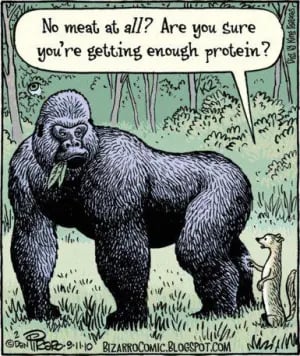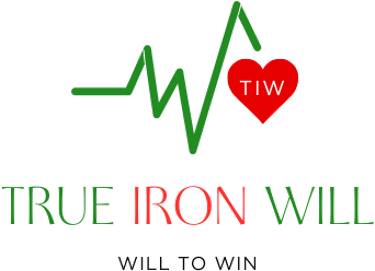How Much Protein Do You Really Need?
Will Loiseau
11/22/20132 min read


No egg whites for breakfast? No protein shake in between meals? What about fish or chicken for dinner? Where do you get your protein from? These are typical questions I hear from people when you tell them either you don’t or rarely eat animal products. High protein diets are all the rage these days. Countless food products boast the amounts of protein they contain and take center stage on supermarket shelves, television, radio and the internet. Why? How much protein do you really need?
Proteins are essential nutrients and are the building blocks of body tissue. The World Health Organization, National Research Council and U.S. National Academies’ Institute of Medicine all suggest that consuming 10% of our total calories from proteins are more than enough. The biggest growth spurt that human beings experience is within the first two years of life. This is when most infants are being breast fed. 6% of the calories that mother’s milk provides a growing infant come from protein. What does that mean? It means that you won’t ever experience more growth than you did during the first two years of your life.
The U.S. government recommends as much as 35% of our total daily calories should come from proteins. While this may serve as great advertising for the meat and dairy industries it has proven to be detrimental to human health. There is absolutely no truth to humans needing animal protein for strong and healthy bodies. All plant foods contain protein. Gorillas and rhinos to name just a few herbivores are very strong and plants are their main source. The average American consumes about 16% of their total calories from protein each day. Unfortunately, most people suffer every day from excess protein and don’t realize the cause. Constipation, digestive disorders, arthritis, premature aging and degenerative conditions are all a result of eating more protein than the body can use. Industrialized countries are experiencing a rise in cancer rates and other known diseases linked to the over-consumption of protein.
In his book The 80/10/10 Diet Dr. Douglas Graham writes, “In general, protein-based foods are highly acid forming in the human body (even the high-protein plants, such as legumes). This is because their predominant minerals are the acidic minerals – chlorine, phosphorus, and sulfur. To maintain homeostasis, the body must counterbalance the acidity caused by excess protein consumption.” In order for the body to keep the blood’s pH level alkaline it leaches calcium from our bones and teeth. Over time, osteoporosis, tooth decay and other serious conditions continue to develop.
Depending on an individual’s weight and activity level, anywhere from 30-60 grams of protein would meet the 5-10% range of daily total calories. Children and adults who consume low-fat vegan diets are far less likely to develop diseases like cancer, heart disease, diabetes, obesity, kidney disease, stroke, etc.
In the words of renowned Cornell University professor emeritus of nutritional biochemistry T. Colin Campbell, “We now know that through enormously complex metabolic systems, the human body can derive all the essential amino acids from the natural variety of plant proteins we encounter every day.”
Whole, fresh, ripe, organic living foods provide us with the optimal nutrients in the right amounts. Most fruits and vegetables contain between 3-9% of the healthiest types of protein. Eat a wide variety in order to ensure that you’re able to reap their many benefits.
Start Your Transformative Journey Today
© 2026 True Iron Will LLC. All Rights Reserved .
Mailing Address:
1317 Edgewater Drive #1297
Orlando, FL 32804
TrueIronWill1@gmail.com
